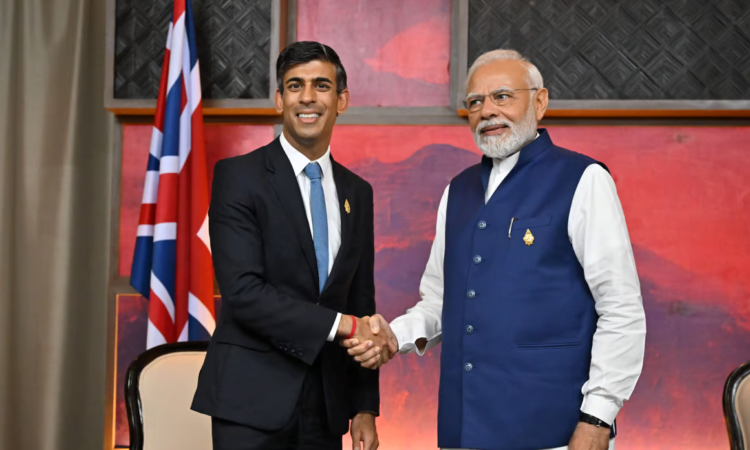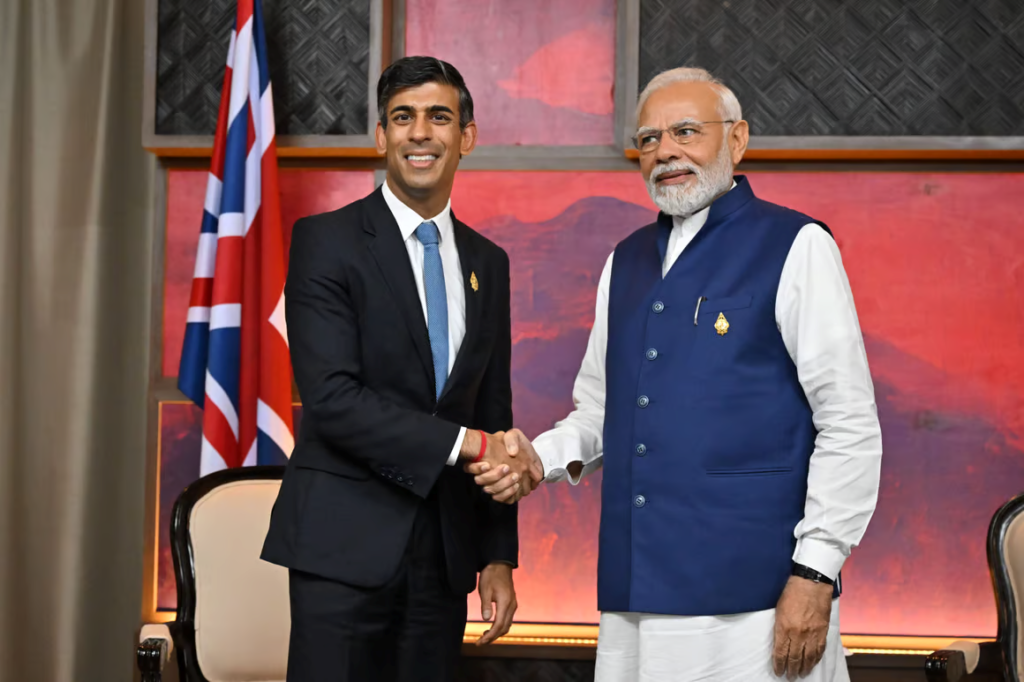
The UK has rejoined the EU’s Horizon scheme for scientific research. The lopsided deal has provisions intended to prevent UK net contributions exceeding 16% of its gross contributions and to prevent UK net benefits exceeding 8% of its gross contributions.
Dear Subscribers,
The UK has rejoined the EU’s Horizon scheme for scientific research. The lopsided deal has provisions intended to prevent UK net contributions exceeding 16% of its gross contributions and to prevent UK net benefits exceeding 8% of its gross contributions. Government officials made the bizarre claim that rejoining the scheme might help to stem the flow of migrants in small boats across the channel.
However, the UK will not rejoin Euratom, the EU’s nuclear fusion research programme. Instead, the government announced £650 million of investment in domestic nuclear research programmes.
The Prime Minister signed a new strategic partnership agreement with Singapore while in India for the G20. Downing Street said both countries will now work to conclude a “new and modern” bilateral investment treaty the first the UK has negotiated since Brexit. Responding to speculation on the progress of talks for a UK-India trade agreement, Rishi Sunak said he would prioritise the quality of an agreement over speed and that there was no guarantee of a deal.

No promises
Germany is pushing for the EU to postpone tariffs on the sale of electric vehicles between UK and EU firms and customers. The tariffs are set to be imposed in January 2024 when a temporary agreement expires. The EU Commission has said publicly that the terms of the agreement will not change, but there are reports of dissent.
North Sea oil and gas production fell at its fastest pace in 10 years in the last 6 months. Output fell by 13% as firms were punished by the windfall tax and look fearfully towards the seemingly inevitable Starmer government. This is a loss for British industry and for climate targets, as demand for oil and gas is met instead by imports from overseas with higher overall carbon footprints.
Media
Global Britain exposes the rejoiners behind the ‘Save British Food’ campaign.
A climate scientist writes about bias in academia for The Free Press.
Blog
The EU bank system is more vulnerable than it looks by Bob Lyddon
Expert on EU finance, Bob Lyddon, argues that EU bank debt is grossly under-estimated due to shadow debt and that the banking system is vulnerable. Below are his answers to a series of questions from a French journalist following his presentation at the IES-IREF Summer School in Aix-en-Provence about the European Stability Mechanism and its dependency on France’s retaining its AA-rating.
They explain away the massive debts in the TARGET2 payment system as just accounting entries that do not reflect real debts, and that anyway the debts reside within the European System of Central Banks. They go on to explain that euros held within central banks are risk-free because it is ‘central bank money’ so it doesn’t matter. The two explanations conflict: the first one makes out the problem does not exist, whereas the second one admits the problem exists but pretends it does not matter. It does matter, because the legal structure of the euro means there is no genuine ‘central bank money’ in euros the way there is in pounds or dollars: a deposit in the Bundesbank does not carry the same risk as a deposit in the Banca d’Italia.
Key Points

Land of Hope and Glory?
Once again, remainer activists have hijacked the Last Night of the Proms by handing out EU flags to promenaders. That activists target one of the few patriotic events the BBC are willing to broadcast is understandable and, perhaps, unavoidable. But that so many promenaders take up the offer so enthusiastically deserves explanation. It is the result of clever branding by Brussels and a failure by eurosceptics to challenge it.
Somehow, europhiles have managed to equate the Europe of Beethoven, Verdi, and Liszt with the ‘Europe’ of Barnier, Van Rompuy and Von der Leyen. The cultural achievements of many nations have been claimed by a small number of inter-governmental bureaucracies as their inheritance. It is almost assumed that the Ode to Joy was written with the European Union in mind.
This is a reliable source of remainer snobbery. Since ‘Europe’ is equated with a thousand years of cultural flourishing, those who criticise it must be insular philistines, barbarian hordes who fail to understand the benign, civilising influence of Roman Imperium.
Of course, this is nonsense. The ‘Europe’ of the Commission, the Council, and the Parliament has nothing to do with European culture. The centralising, federalising instincts of Brussels bureaucrats would have stifled the endless variation that characterises Europe proper. Only someone with the shallowest appreciation for ‘European culture’ and the slightest acquaintance with the EU’s byzantine bureaucracy could think that the one could represent the other.
But somehow, the fantasy persists. Eurosceptics are still portrayed as ignorant boors, europhiles still see themselves as enlightened connoisseurs, and EU flags still make an annual appearance at the Proms. What is supposed to be the meaning of this gesture, if not to mourn the departure of Britain from the imaginary cultural society known alternately as ‘the EU’ or just ‘Europe’? We might wonder, ‘what should they know of Europe, who only ‘Europe’ know?’.
(@Briefings_Brit)
We are also on Twitter, posting articles and retweeting the daily events that bring
Brexit to the fore in the national news.
Discussion also continues over on Facebook.
How you can help
There is much about Britain’s relationship with Europe that remains to be
decided. Our MPs listen to their constituents. Do continue to send them links to
our articles, especially on matters relevant to your constituency. Alternatively,
make an appointment to speak to them at their next surgery. Let them know
what you want post-Brexit Britain to look like.
Yet it is also time for unity and reconciliation. Keep reading our posts and share
links to our quality content to help others understand how leaving the EU has
benefited the UK economy and democratic governance. We aim to educate our
critics to think differently and more positively about the long-term impact of
Brexit.
You can follow us on Facebook and Twitter.
Yours sincerely,
Newsletter Editor
A Cambridge Philosophy Graduate






